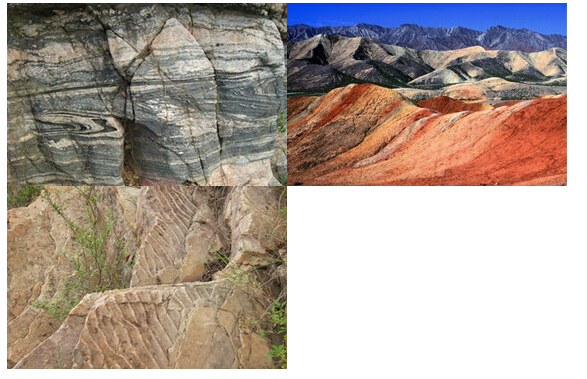
The Geology group focuses on fundamental problems of quaternary geology, mineralogy, petrology, mineral deposit geology, structural geology, geochemistry and engineering geology.
The Quaternary science represent the systematic study of the most recent geologic period, spanning the last 2.6 million years or so of geological time and characterized by a series of glaciations interspersed with interglacial intervals, such as the Holocene. The key element in Quaternary science research is establishing the timing of climatic changes and of their effects on the earth’s environment. Quaternary Geology is an interdisciplinary subject concerned with the history of environmental changes on Earth. It is the goal for Quaternary geologist to interpret the geological record from this period in order to understand the key processes (physical, chemical, biological, atmospheric, human-induced) that trigger and modulate environmental change at all geographic and temporal scales.
Mineralogy, Petrology and Ore Deposits devote themselves in the framework of Earth System Science to study the formation and evolution of the geological bodies. The Mineralogy multidisciplinary covered the entire field of geology, and focuses on mineralogically-oriented topics in crystallography, crystal chemistry, applied mineralogy, mineral physics. Igneous Petrology provides field relations and fabrics of rocks, together with their mineralogical, chemical and isotopic compositions to constrain its petrogenesis. Metamorphic geology involved deformation, metamorphism and element redistribution during a metamorphic process, applying structural, geochronological and metamorphic reaction analyses to decipher tectonic processes of metamorphic terrains. The ore deposits mainly focus on material sources, genetic mechanism, spatial and temporal distribution of various types of deposits. Mineralogy and petrology studies of ore minerals and associated gangue are usually conducted with the aim of constraining the genesis and mineral associations of ore deposits.
Stable Isotope geochemistry is one field of isotope geochemistry based upon study of the relative concentrations of the elements in the Earth. Variations in the abundance of these stable isotopes of the elements, typically measured with an isotope ratio mass spectrometer, can reveal information about the temperature of a rock. Isotope ratios can even shed light on chemical processes of geological events. Computing Geochemistry is an interdiscipline which use the theory and technique of computing chemistry to solve some problems in geochemistry. For some situations that experiments cannot be implemented, computing geochemistry can give us some theoretical estimation.
Geological Engineering is based on the theories of natural science and earth science, focused on the geological investigation, the survey of mineral resources and the engineering problems on geological structure and geological background of important projects, adopts the method of geology, geophysical and geochemical technology, geomathematics, remote sensing technology, testing and detecting technology as well as the computer technology, and services for the national economic construction.
Faculty in the core areas of Geology include:
● Quaternary Geology (Haitao You, Yumei Li, Ping Liu)
● Mineralogy, Petrology, Mineral Deposit Geology (Chunming Wu, Qing Liu, Guiping Zhao, Jinfeng Sun)
● Structural Geology (Quanlin Hou, Yiwen Ju, Yuxiu Zhang)
● Geochemistry (Yongbing Li)
● Engineering Geology (Qingli Zeng)